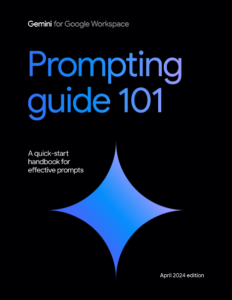I was recently interviewed by Israel’s BuzzInNews about new media and business. The conversation was translated from Hebrew to English, to share with you here as well. The discussion explores the evolution of social media in business from attention economics to B2B to ROI and concluding with a discussion of the brewing cold war between Google and Facebook.

As an expert on New Media, could you provide an insight to what the difference is between New Media and Social Media? Do you think “New Media” is still new, or perhaps we should replace the word “New” with another word? If so, what word would that be and why?
That’s the thing about new media, it’s always new…Social media is just a chapter in the ongoing story of new media. For example, check-ins, augmented reality, swipes that trigger events, are all forms of new media. Social emerged as a category to document the rise of interactive platforms, channels and services that gave way to the democratization of information.
In your new book “Engage!” you talk about Attention Economics, and deem attention as a scarce and finite resource. What would you recommend Social Media agencies do in order to capture the attention of people’s attention?
Competing for attention is the problem with marketing and media and real-time media only heightens the problem. Competing for attention is similar to competing for the moment. By moving and reacting, we’re not investing in the legacy of the brand nor its presence within new digital societies. It’s real-time vs. right time + right place. Attention is only thinning for the near future and the only way to capture attention is through scale. Rather than 1 to 1 engagement, we need to focus on the opportunities where 1 + 1 = many. Recognition and empowerment are the secrets to scale. Giving reasons for people to not only consume and interact with the brand or related content, but share it is how we can earn recurring attention. The future of marketing lies in shared experiences.
Companies are still reluctant to utilizing Facebook/SM for B2B activity. Many of them question the added value to revenue. What would your advice be?
My advice is true for social media and any other aspect in business. We need to first research where desirable individuals are interacting and who it is that influences them. Then we work backwards from there. In many B2B cases, I’ve found that Facebook is not where resources should focus, instead blogs, LinkedIn, and discussion groups have proved more productive and lucrative. Everything begins with gathering intelligence.
How can success in a social media program be measured?
You can’t measure what it is you do not value. We often hear the debate about ROI, yet so very few people are qualified to address it in a way that appeases executives. It’s impossible to measure the ROI for something if we haven’t first established the R (Return) or the I (Investment). Even though social media is inexpensive or free or relatively inexpensive to host a presence, time and resources still maintain fixed costs. And, if we enhance our presences or apply greater resources, the investment goes up exponentially. The true challenge here however, is the need to first design outcomes into the equation. What do we want to accomplish? What’s the return we seek? Are we trying to sell, change, drive, cause, or inspire something specific? Are we reducing customer problems as measured by inbound volume, open tickets, public discourse? Are we trying to shift sentiment to a more positive state that increases referrals as a result? While parts of social media are purely designed for branding purposes, like direct marketing and online advertising, programs can also be designed to trigger desirable outcomes. How are you converting attention and clicks to a measurable return? Finding the answer will reveal that ROI and metrics exist at the program and departmental level and travel all the way to the top. And, they’re unique at every step of the way. Think about this and then revisit the ROI discussion.
Google vs. Facebook – what search will prevail? Do you think Facebook’s search will take off? Has Google got anything to fear? Will Google go social?
The media is currently focusing on search vs. social. I believe this is actually less about Google vs. Facebook and more about the traditional online consumer vs. the emerging role of the connected or social consumer. This comes down to behavior and the support systems connected consumers are building around themselves. How they find information, share experiences, and make decisions are different. Gigya published a report last year that demonstrates how the two groups approach search. Combining this with my research, traditional consumers and also connected consumers take to Google to search. When it comes down to making a decision however, social consumers take to their feeds to see who’s talking about the topic and to also seek input from their social graph. As social search evolves within Facebook for example, social consumers may forgo Google to stay within the realm of their network. When initiating a search, results qualified by peers take a lot of the extra work out of the process.
If we look at Google’s approach to search, well, it’s integrating social media and the social graph into search results. But Google is losing its appeal as a destination amongst the connected consumer. Therefore Google is exploring social and the much rumored Google Me, to weave a fabric that connects people and information through social graphs and also the world wide web. Competing for the social consumer will reveal a winner. More here: The Next Cold War: Google vs. Facebook.
Connect with Brian Solis on Twitter, LinkedIn, Facebook
![]()
___
If you’re looking for a way to FIND answers in social media, consider Engage!: It will help…

___
Get The Conversation Prism:

___
Image Credit: Shutterstock






Brian, I like your take on ROI. I think we need to strike a balance, because for some, ROI comes down simply to “how much more money will I make if I do this?”, and yet the ROI is much more subtle, depending on how you are approaching Social Media, especially in the areas of Customer service, problem solving, and grooming for word of mouth and referrals. Metrics are important, but some times they just aren’t there, or don’t tell the whole story.
Thanks for posting this.
Ken, right. I before E except after C…Insight before engagement unless customer or community needs take immediate precedence. This is the equation for the adaptive business of tomorrow.
Glad you said tha, Ken. The GREAT SOCIAL MEDIA QUESTION always seems to involve ROI. Your answer is one I’ll remember. ‘Sometimes they just aren’t there.’
Why didn’t you think of that, Brian? 😉
Everything is so social these days that everyone and my mom think they can get an piece of it. From Google to Facebook..this is the path that most people travel when it comes to searching out info..is social media over rated these days..I will say no way my friend..its an train that everyone must take if I was you.
“Black Seo Guy “Signing Off”
Brian,
It seems to me that there is a “path of least resistance” that is directing how people behind the scenes are reacting. Something in my head is saying, “But that’s how they (the other guys) are doing it!” And it’s here that New Media is confused with Social Media.
Or perhaps New Media is the chapter, and Social Media is the book?
Paul, it is because of this that I have lessened the amount of value I place on case studies.
Could. Not. Agree. More.
I have a blog post coming up where I lampoon case studies. Blech.
That last question of Google vs. Facebook had a great response. Thanks Brian.
Thank you sir.
Brian, I think you hit the nail on the head with “Giving reasons for people to not only consume and interact with the brand or related content, but share it is how we can earn recurring attention. The future of marketing lies in shared experiences.” It’s the reason game mechanics is such a hot area right now – “old” marketing used psychology to tap into people’s fears, insecurities and ambitions, “new” marketing is using it to tap into the pleasure centers of the brain.
Liza
Liza, I couldn’t have said it any better myself. Thank you…
I like the comment about New Media, and a change in name.
Interesting thought, media has always been new, reinventing itself, it is only the rate of change that is increasing exponentially. Is there ever going to be a time where it won’t be “new” media?
Joey @sparksheet
Spot on definition for ROI as part of a social media programme. I have heard the term ROE – Return on Engagement banded around. But there is scope for further reinterpretation of ROI from it’s pure economic origins. A broader definition is required that encompasses not only financial, but also social or civic investment.
Yes. You’re absolutely right. At the end of the day, ROE (engagement), ROP (participation…which I introduced years ago), ROI (ignorance), etc., each are still bound by returns on investment.
Shared experiences: the glue of New Media. Communities of shared interests and expectations will inevitably be more pertinent to ROI than a simple sales message.
What I don’t get is why so many blindly commit resources without the data or intelligence to inform decisions.
That second last question has a really really good answer.
“You can’t measure what it is you do not value.”
Good comment. But try explaing social media to Chinese execs used to top-down directive and information flow!
Everything has a beginning to its end.
I love the point you make about shared experiences. There is such an emotional weight behind shared experiences that people often overlook, and it is these emotions that provide extremely powerful context. By leveraging shared experiences, it becomes 10x easier – and more enjoyable – to engage people with your brand, whatever it may be, because you can tap into those emotions. Great piece, Brian.